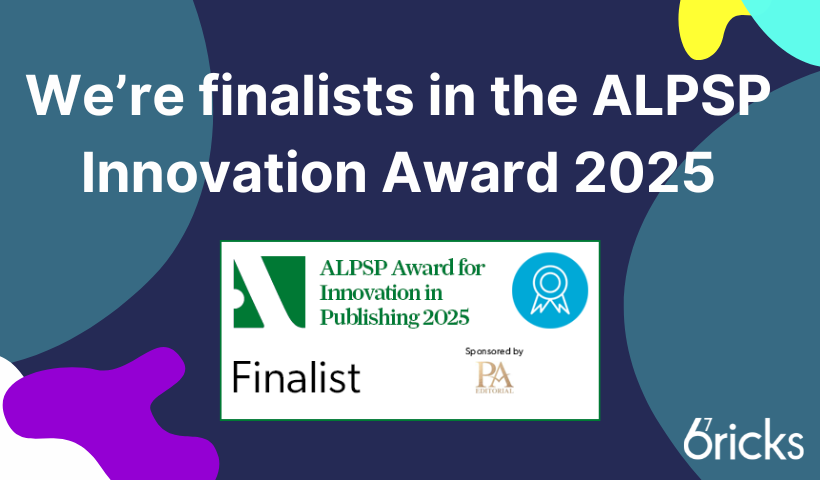Our Head of Marketing and Communications, Emma Watkins, recently penned this article on how brand strength and equity is one of the most important tools in any information publisher’s kit.
Why brand might be the key to surviving the AI-pocalypse
I’ve had a lot of conversations lately about the impact of GenAI in its various forms on the publishing and media industry. Many of them have been around the changes to user expectations, new journeys and experiences like voice-chat and iterative prompts becoming the norm, replacing keyword searches and search engine results pages (SERPs).
But, for me as a lifelong marketeer, the most interesting aspect of all this is the elevation of brand equity as an essential moat that information companies are going to need to survive against a rising tide of AI firms who are gunning to replace them as the place where their customers go to find the right answers.
What happens post-SERP?
Firstly, don’t get me wrong. I don’t think Alphabet are suddenly going to disappear. And I’m sure there are very clever thinkers who are three steps ahead of the current situation and looking for ways to protect their revenue in a post-ChatGPT world.
But it’s fascinating to me that with the advent of large GPT models being open to the public (with the latest release from OpenAI offering almost everything for free that was previously behind a paywall) Google’s stranglehold on the information pipeline could be loosening. For years, companies have created entire content strategies around appealing to the Google algorithm, as well as spending millions on paid search results. Appearing at the top of Page 1 was pretty much the only goal – according to Backlinko, the first result on Google search results receives approximately 28% of all clicks.But AI-powered chatbots are poised to shake all that up.
Firstly, Google itself has not only recently updated its algorithm dramatically (with huge traffic drops for some of the internet’s most trusted sources like the NYT and thedesk.com), but from this week it is now rolling out its Gemini-backed AI overviews in the US, which will replace those coveted first search results in the prime real estate at the top of the SERP. Google themselves say they believe this will increase traffic to publishers’ sites. I struggle to see how that will be the case, especially as their AI will undoubtedly improve its output once people start to use it. Why on earth would users click to find out more when their questions have been answered, and if they want more detail they can just keep chatting to Gemini?
The other elephant in this room of course is OpenAI, which is adopting an aggressive loss-leader strategy with ChatGPT-4o. They are looking to become the default AI product that will replace Google as step one when trying to find any information on the internet. The latest release offers, for free, a hugely powerful change in user experience including a new desktop app, conversational voice mode (where you can even interrupt mid-conversation), and a live translation tool. There are rumours that OpenAI has signed a deal with Apple and could end up powering Siri, and of course they have been aggressively inking content licensing deals with publishers like The Associated Press, Axel Springer, Le Monde, The FT, and Reddit. The recently leaked publisher partnership pitch deck offers a glimpse at their proposed new way of generating revenue – charging publishers to appear more prominently within chat conversations.

With all this movement, I am intrigued by one big question – will these deals erode the trust in the results? Admittedly people have always paid to appear in search results pages, but those links have (mostly) been obvious that they are ads, with users able to scroll further down to see organic results. But if the paid-for results are merely appearing as part of a chatbot’s answer, how obvious will the paid placement be? Given most current outputs are sourced from a variety of places and then pulled together into one answer, how will we be able to tell which bits come from which publishers? And which are organic and which are paid placements?
This must be a core question in the minds of those media companies yet to make any deals with any of the AI providers. Their individual brands will need to be assessed for their equity – either to command a high price for licensing or to remain separate from the herd and rely on their strength to create niche communities that continue to rely on them and therefore go straight to the source.
Why will brand matter?
It feels like we are forever entering new ages of misinformation. What started out as an attack on ‘mainstream media’ by the Trump campaign, has opened into all-out battle for trusted information, fueled by early GenAI hallucinating answers and presenting them as fact, and bots peppering social media with misleading information and hate speech. And while the reports that our attention spans are being reduced may be over-inflated, it’s certainly true that our brains prefer a short-cut when deciding whether to pay attention to something. One of the most prevalent heuristics is the brand of whoever is doing the talking, which quickly boils down to ‘do I trust this?’.
There are a number of ways brands will influence the success of their businesses, some of which are new to this space.
- Premium licensing deals
As the different AI models compete for content to train their LLMs on, the most trusted, high-quality content will (for now) command a high price to licence. One of the big hurdles for AI is that the public knows that it isn’t always right – that it can and will hallucinate facts, and that it is only as good as the data it is trained on. By tying their brands to established, trusted media and information companies, the AI firms can increase their own brand value – a commodity they will pay for while capital is high and the race is on to establish a lead player. The stronger and more trusted the brand, the more money to bring their content over.
2. Owning a niche community
The alternative to throwing your content in with an LLM is to double down on your brand equity and carve out your own niche. If your brand is truly strong enough to keep attracting users, either because you offer insights they cannot get anywhere else, or they simply trust you more than the competition, then you have the opportunity to really own a space. Finding ways to improve and add value to your services is essential to making the most out of your existing brand equity – how can you attract new users, or expand your offering so that people with different use cases and pricing sensitivities can find something that works for them? And, most importantly, how can you develop your product and content to be an essential part of your users’ workflow? The stickier you are, the more secure you’ll be.
3. Expanding your reach with brand extensions
For really strong brands, there’s a huge opportunity to leverage your equity in new markets by extending your brand into new products and experiences. A perfect example of this is the FT – they have extended their incredibly well-respected journalism brand into a variety of revenue streams including consultancy, events and members-only communities. Each of these new products presents very little risk to the core brand, and enables revenue diversification and potentially more security long-term. For brands who have created strong personas in one area – where else can you provide value? As Mark Ritson has often argued, the potential damage to your core brand is very low, even if the new product fails.

For every information company, the maths is going to be different. As a marketer, my main advice is (if you haven’t already) you need to honestly and thoroughly diagnose where your brand is in the minds of your customers. Do the research. Get close to the people you want to attract, understand what they really think about you – or worse, if they never think about you at all. Then, and only then, can you start thinking about your next steps. But, make no mistake, you will need to do this soon, because the sands are shifting fast and not everyone is going to survive.


